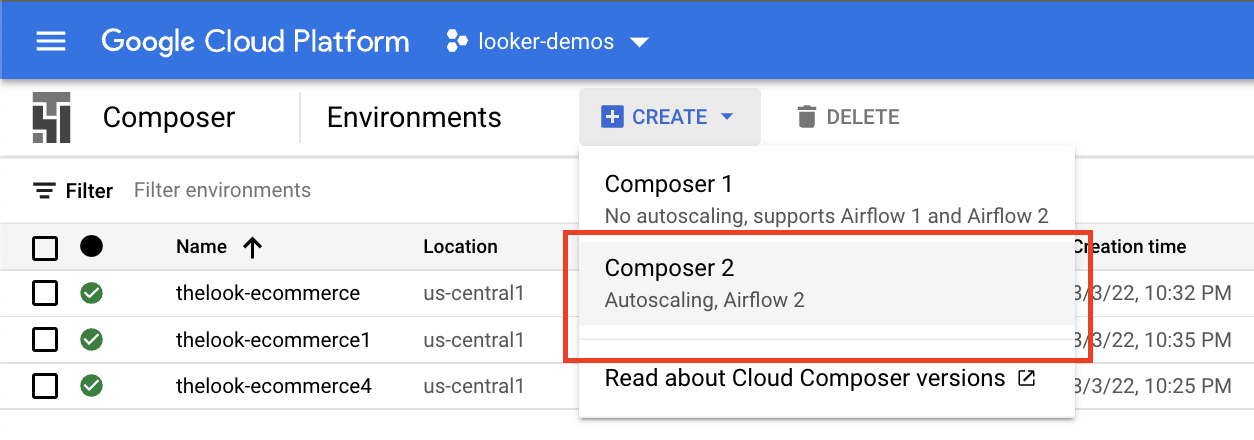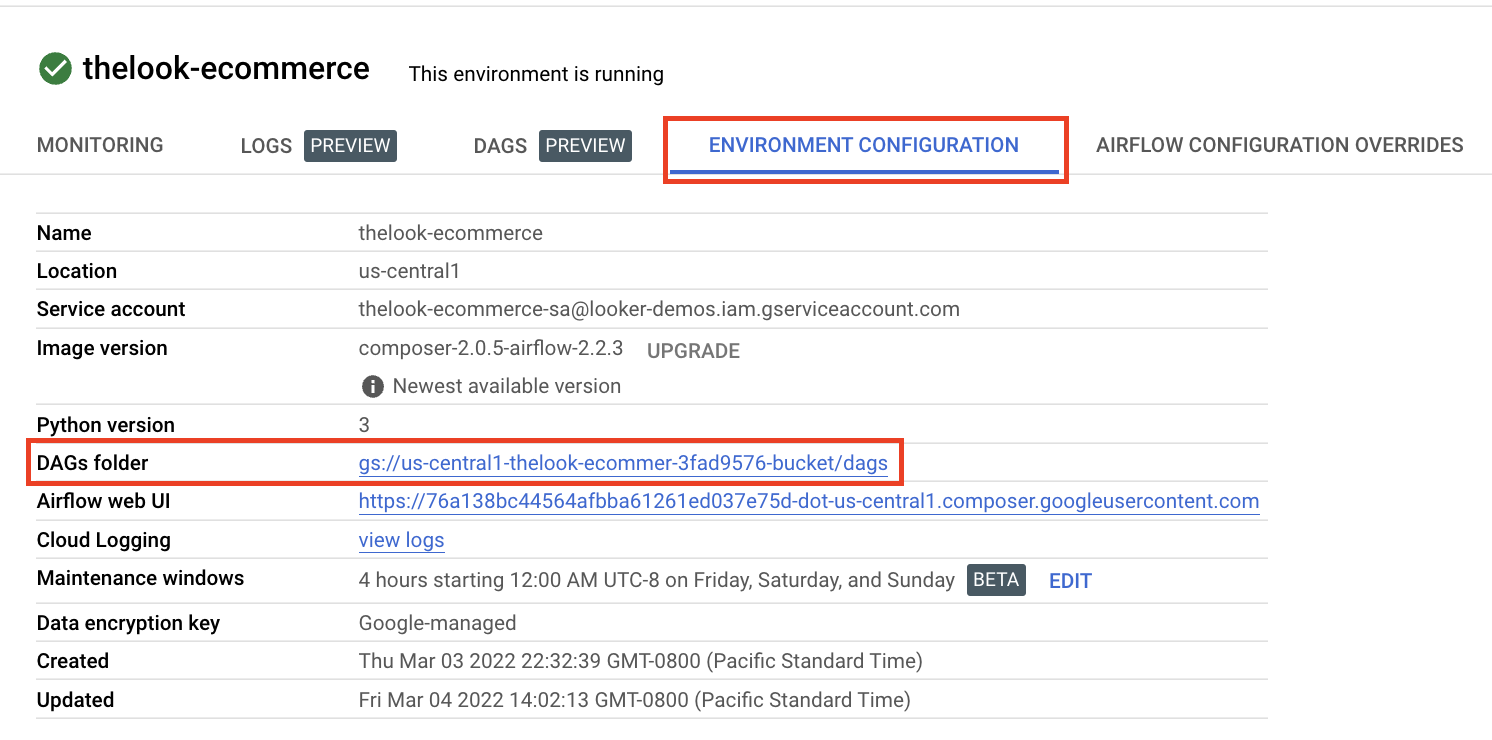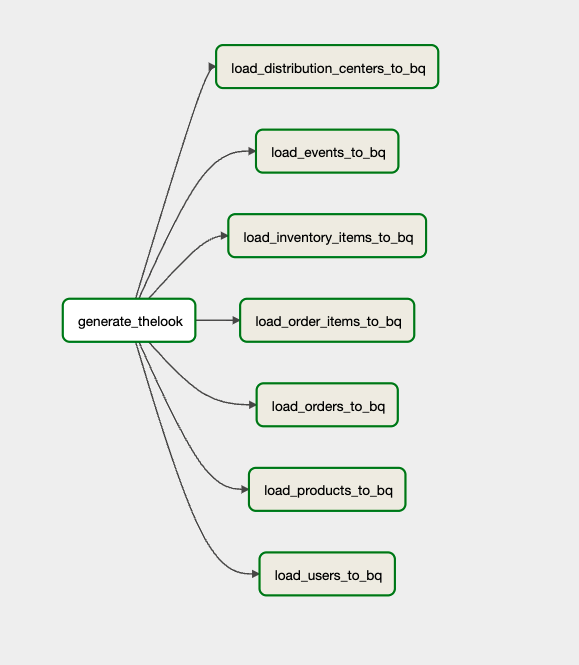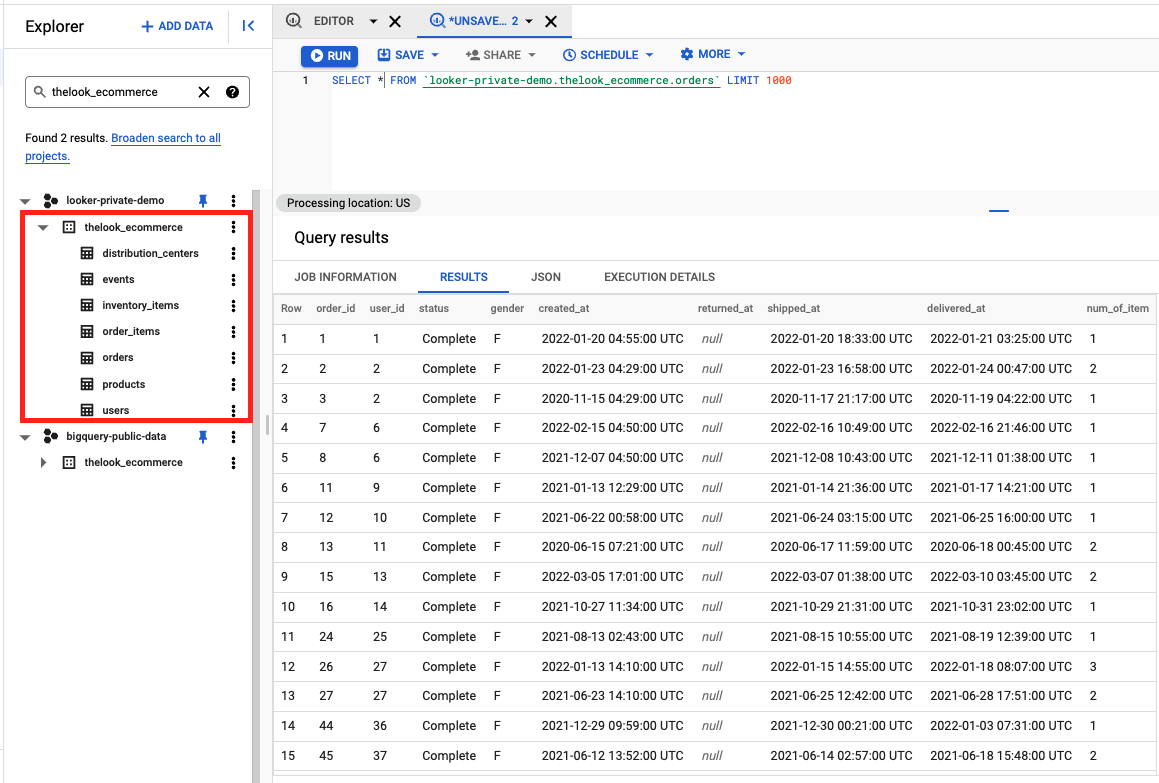We're using the BQ Public Datasets Pipeline to deploy a cloud-native, data pipeline architecture for onboarding datasets within Argolis.
- Access to Cloudtop Env
- Access to Argolis Env
- Ensure Argolis Env is set up to allow for creation of Composer 2 env. More context found here
- Python
>=3.6.10,<3.9. We currently use3.8. For more info, see the Cloud Composer version list. - Familiarity with Apache Airflow (
>=v2.1.0) - pipenv for creating similar Python environments via
Pipfile.lock - gcloud command-line tool with Google Cloud Platform credentials configured. Instructions can be found here.
- Terraform
>=v0.15.1 - Google Cloud Composer environment running Apache Airflow
>=2.1.0and Cloud Composer>=2.0.0. To create a new Cloud Composer environment, see this guide.
- SSH into Cloudtop Instance
- Clone this repo
cd https://github.com/llooker/bq_dataset_pipeline- authenticate to Argolis via gcloud
gcloud auth login
gcloud auth application-default loginWe use Pipenv to make environment setup more deterministic and uniform across different machines. If you haven't done so, install Pipenv using these instructions.
pipenv install --ignore-pipfile --dev- Within your Argolis Project create your Composer 2 Enviornment (we're naming ours
thelook-ecommercehosted inus-central1if you want to follow along)
If there's an issue spinning up a composer env, most likely your Argolis Env isn't set up properly (more context here)
- Once your Composer 2 Env is up and running (takes ~25 min) you'll want to click into it and set your enviornment variables.
| NAME | VALUE |
|---|---|
| AIRFLOW_VAR_GCP_PROJECT | Your GCP Argolis Project Name |
| GCS bucket of the Composer environment | Your Composer Enviornment's Bucket Name |
| AIRFLOW_VAR_AIRFLOW_HOME | /home/airflow/gcs |
- Please note that the GCS bucket for your Composer Env can be found by clicking into the environment > Enviornment Configuation tab > DAGs Folder (be sure to just copy the bucket name - don't include any folders)
On Cloutop within the run the following command from the project root (be sure to replace the placeholders with your environment's values):
$ pipenv run python scripts/generate_terraform.py \
--dataset thelook_ecommerce \
--gcp-project-id $GCP_PROJECT_ID \
--region $REGION \
--bucket-name-prefix $UNIQUE_BUCKET_PREFIX \
--tf-apply| PLACEHOLDER | Description |
|---|---|
| $GCP_PROJECT_ID | Your Argolis Project Name |
| $REGION | Region where your Composer 2 Enviornment is Deployed |
| $UNIQUE_BUCKET_PREFIX | Your Composer Env bucket name |
- This will generate the terrform files and create the infra within your GCP Project (eg. you should now see a dataset named
thelook_ecommercewith multiple tables defined)
Run the following command from the project root:
$ pipenv run python scripts/generate_dag.py \
--dataset thelook_ecommerce \
--pipeline $PIPELINE| PLACEHOLDER | Description |
|---|---|
| $PIPELINE | Name of your Composer 2 Env - in our example it's called thelook-ecommerce |
- This will build our Docker Image and upload into Container Registry and generate our DAG file using the
pipeline.yaml file - Within our Argolis Project, navigate to
Images - Container Registryand copy the repo name containing our docker image (eg. gcr.io/looker-demos/thelook_ecommerce__run_thelook_kub)
- On Cloudtop Navigate to your
.dev/datasets/thelook_ecommerce/pipelinesfolder - Create a new file called
thelook_ecommerce_variables.json - Paste in the json below, replacing the
docker_imagevalue with your envirnment's docker image repository link if needed
{
"thelook_ecommerce": {
"docker_image": "gcr.io/looker-demos/thelook_ecommerce__run_thelook_kub"
}
}Back in the project root directory, run the following command:
$ pipenv run python scripts/deploy_dag.py \
--dataset thelook_ecommerce \
--composer-env $CLOUD_COMPOSER_ENVIRONMENT_NAME \
--composer-bucket $CLOUD_COMPOSER_BUCKET \
--composer-region $CLOUD_COMPOSER_REGION
| PLACEHOLDER | Description |
|---|---|
| $CLOUD_COMPOSER_ENVIRONMENT_NAME | Name of your Cloud Composer Enviornment - in our example it's claled thelook-ecommerce |
| $CLOUD_COMPOSER_BUCKET | Your Composer Env bucket name |
| $CLOUD_COMPOSER_REGION | Region your Composer Env is deployed in |
- Go to your Airflow Composer Env and view the dag to make sure it's running (takes ~15-25 minutes for the data to be generated and uploaded into BQ)
- Query your BQ table and data!




